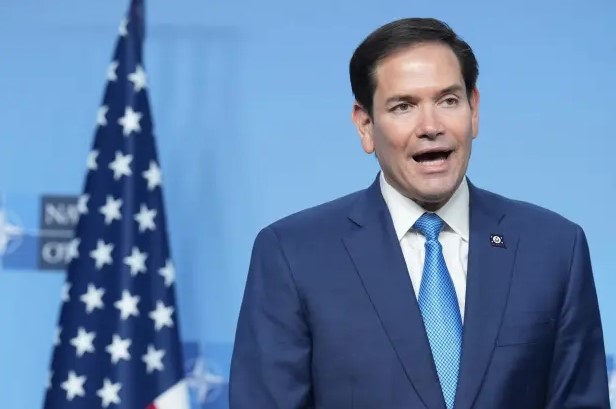Tensions are rising within the NATO alliance as France openly expresses concerns about the unity and stability of the organization.
French officials have warned that recent actions and statements from U.S. President Donald Trump are putting NATO to the test, despite U.S. Secretary of State Marco Rubio’s attempts to reassure allies.
France Expresses Deep Concerns Over NATO’s Future
French Foreign Minister Jean-Noel Barrot has stated that NATO is facing serious challenges due to Trump’s recent decisions. France fears that the United States may not be as committed to NATO as before, leaving European allies uncertain about their security.
These concerns have grown following Trump’s latest remarks, which have made some European countries question whether they can still rely on the U.S. for military support.
This discomfort prompted U.S. Secretary of State Marco Rubio and recently appointed U.S. Ambassador to NATO Matt Whitaker have arrived in Brussels. They are attending a meeting of NATO foreign ministers, hoping to ease tensions and reassure America’s allies. However, many European officials remain skeptical and are seeking clear answers from the U.S. regarding its military presence in Europe.
Macron Rages Against Patriot and F-35 ‘Threat,’ Urges Europe to Buy SAMP/T NG and Rafale
Rubio Defends U.S. Commitment to NATO
Despite the concerns from France and other European countries, Marco Rubio has dismissed the fears as unnecessary. He insists that the U.S. remains a strong part of NATO and that President Trump fully supports the alliance. The U.S. is as active in NATO as ever, Rubio underlined while speaking with NATO Secretary-General Mark Rutte.
“”President Trump has made it clear that he supports NATO. We’re not going anywhere. Actually, we’d like to strengthen the partnership,” Rubio said. He also urged NATO member states to increase their military spending and build stronger defense capabilities.
Ambassador Matt Whitaker echoed Rubio’s message, claiming that under Trump’s leadership, NATO would become even stronger and more effective. However, he also reminded European nations that they must take on more responsibility for their own security. According to Whitaker, NATO’s strength depends on all its members contributing fairly.
Giorgia Meloni’s Uncertain NATO Light Plan for Ukraine Deserves Attention
Despite these reassurances, many European leaders remain uncertain. They point to Trump’s shifting foreign policies and his past criticisms of NATO allies, which have made some countries uneasy. There are also concerns about Trump’s warmer approach toward Russian President Vladimir Putin, as well as recent economic policies, such as new tariffs, that could harm European economies.
Europe Worries About U.S. Military Presence
While Rubio and Whitaker attempt to reassure NATO allies, many European officials remain cautious. Some countries believe that the U.S. may soon reduce its military presence in Europe, which could weaken NATO’s overall strength.
This uncertainty has led European nations to start preparing for a future where they may need to rely more on their own military forces. Countries like Germany, France, and Canada are working on strengthening their defense capabilities and increasing their military spending.
Rubio spoke with Danish Foreign Minister Lars Løkke Rasmussen during the NATO meeting. However, neither official commented on Greenland, a sensitive topic since Trump once suggested that the U.S. should buy the island from Denmark.
Russia’s 5th Yasen-M Submarine Armed with Hypersonic Missiles Sparks Tensions
By stating that the United States has no immediate plans to decrease its military presence in Europe, NATO Secretary Mark Rutte has tried to allay concerns. However, many European leaders remain doubtful. Trump’s shifting focus on U.S. domestic affairs and his strategy toward Asia have left NATO members worried about potential security gaps.
In Washington, political tensions have also emerged over the issue. Senator Roger Wicker, a Republican and chair of the Senate Armed Services Committee, recently criticized Pentagon officials for allegedly considering a major reduction in U.S. troop levels in Europe. However, the U.S. Department of Defense has not confirmed any such plans.
As a result, European governments and Canada are now working on ways to strengthen NATO without relying too much on the U.S. Some officials refer to this effort as “burden shifting,” meaning that European nations will take on more responsibility for their own security.
Dutch Foreign Minister Caspar Veldkamp summed up the European position by saying, “The United States anticipates more defense efforts from its partners in Europe. This implies that we need to boost military spending and fortify NATO’s European pillar as soon as possible.”
For now, NATO allies remain watchful as they try to understand the Trump administration’s long-term plans. Whether or not Rubio’s reassurances will be enough to calm European fears remains an open question.

